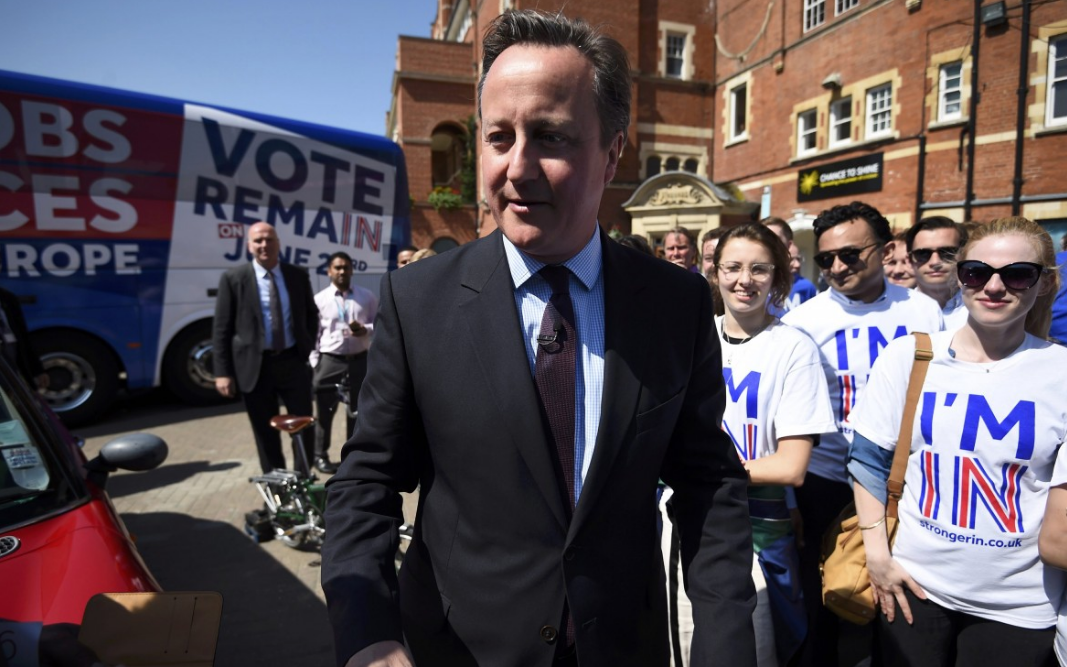Analysis
Brexit referendum polls: 45% Remain, 43% Leave
The British referendum on June 23 will not only determine whether the E.U. holds, but the United Kingdom and its major parties as well.

It was 1956, and Britain was licking its self-inflicted post-Suez wounds. Dean Acheson, then the U.S. Secretary of State, commented on the imperialist bluster of British Foreign Secretary Anthony Eden with the emblematic maxim: “Britain has lost an empire and has not yet found a role.” Since then, all of British foreign policy, culminating in its entry into the European community (followed by the 1975 referendum that reaffirmed its permanence), was an attempt to put the lie to this truth, calculate its losses and search for its lost role. The U.K. would come to act as the American apostolic legate to Brussels.
Now we’re less than two weeks away from a potential “U.K. Year Zero”: an awakening on the morning of June 24 in which the Leave vote has won, the country is outside the E.U. and a number of scenarios that no one is able to clearly outline begins. One certainty is perhaps the “nein” that Wolfgang Schäuble has already issued (in an interview with Der Spiegel) to the possibility of being admitted to the single market while not being part of the union, on which Leave supporters have been hanging. Polls give 45 percent to Remain and 43 percent for the exit. Both major parties are split. Sure, the Lib Dems are pro E.U., but they hold their meetings inside their apartments.
Both from the right, center and left, the list of valid reasons to stay or go is long and complex. But so far the issue is causing bruises among conservatives (the blue partisans of Remain now openly accuse Boris Johnson of thinking only of Downing Street). Labour’s Corbyn also has his dilemmas. Leave is exacerbated by the Left, the Eurosceptic front of the so-called radical left. In yet another, imaginative symbol, “Lexit” collects the revolutionary Trotskyites of the SWP and others who want to get out of an assembly subject to Berlin’s bullying, which has kept Greece on its knees and created the nightmare that is TTIP.
Although on Friday two other Labour MPs, John Mann and veteran Dennis Skinner, said they were pro-exit, Andy Burnham, shadow interior minister and Corbyn ex-rival, warned that Remain is in danger of losing. He said it would not only fragment the country — the Scottish nationalist Nicola Sturgeon certainly thinks so — but in a domino effect would have repercussions in the E.U. itself, emboldening other recalcitrant members, such as the Netherlands.
Centrist voters — those who dislike Corbyn — have been pro-E.U. ever since New Labour Blair, via Neil Kinnock, saw the end of Socialist Euroscepticism as a hegemonic tool to climbing the party. They are, according to Burnham, the converts to whom it is useless to preach. The working class areas are eurosceptic Labour voters, and the party is not doing enough to persuade them to stay. They are also personally affected by immigration (as Leave now insists like a broken record) and unemployment. This is confirmed by a YouGov poll commissioned by the Financial Times: The inhabitants of socially disadvantaged regions, such as the East Midlands, Yorkshire and Humberside, are more in favor of the exit.
Criticism of Burnham’s leadership sums up the speeches of deputy secretary Tom Watson and former leader Ed Miliband, who are redoubling their efforts to compensate for Corbyn’s inertia, the former arguing that the Brexit would lead to the Tories cutting another £18 billion from welfare, and the latter that an exit would mean an assault on workers’ rights. Like Corbyn, they are in the same tricky position: In the name of maintaining the party at all costs, they’re forced to swallow the bitter cup of Remain, contrary to previous anti-E.U. militancy.
In fact, the situation today is reminiscent of the referendum of 1975, but reversed. At that time the Thatcher Tories campaigned to stay in the European Community, in the name of the ultra-liberalism that has always distinguished them.
And it was Tony Benn, the spiritual father of Corbyn and leader of the Labour left at that time, who saw the E.U. as a gang of occupiers — a deal bad enough to hold their nose and appear alongside Eurosceptics like Enoch Powell, leader of the Tory racist right. Now Corbyn must fall into the role of a fervent supporter of something he does not believe in at all, and in the name of political realism to which he does not belong. And like a bad actor, he made a series of anodyne measures, arguing that it is better to defend the rights of workers from within the E.U., despite the rise of European social democratic parties that seek to undermine workers rights from France to Italy.
It cannot be ignored that the defence of jobs in the E.U. helped produce shady beneficiaries of zero-hour contracts like Mike Ashley, the billionaire owner of Sports Direct, currently under investigation for obscene treatment of workers, or the murky story of BHS clothing, which failed after a series of cheerful and profitable ownership changes that burned 11,000 jobs.
Corbyn has declined to appear on the same stage as David Cameron & Co. so that we think of the prime minister as being to his right. It’s like Tony Blair, who, perhaps to distract from the imminent outcome of the Chilcot Inquiry, made an appearance a few days ago with Thatcher’s successor John Major, possibly to give another boost to the cause that seeks to remain.
Originally published at http://ilmanifesto.info/sondaggi-uk-anno-zero-45-remain-e-43-leave/ on 2016-06-11
